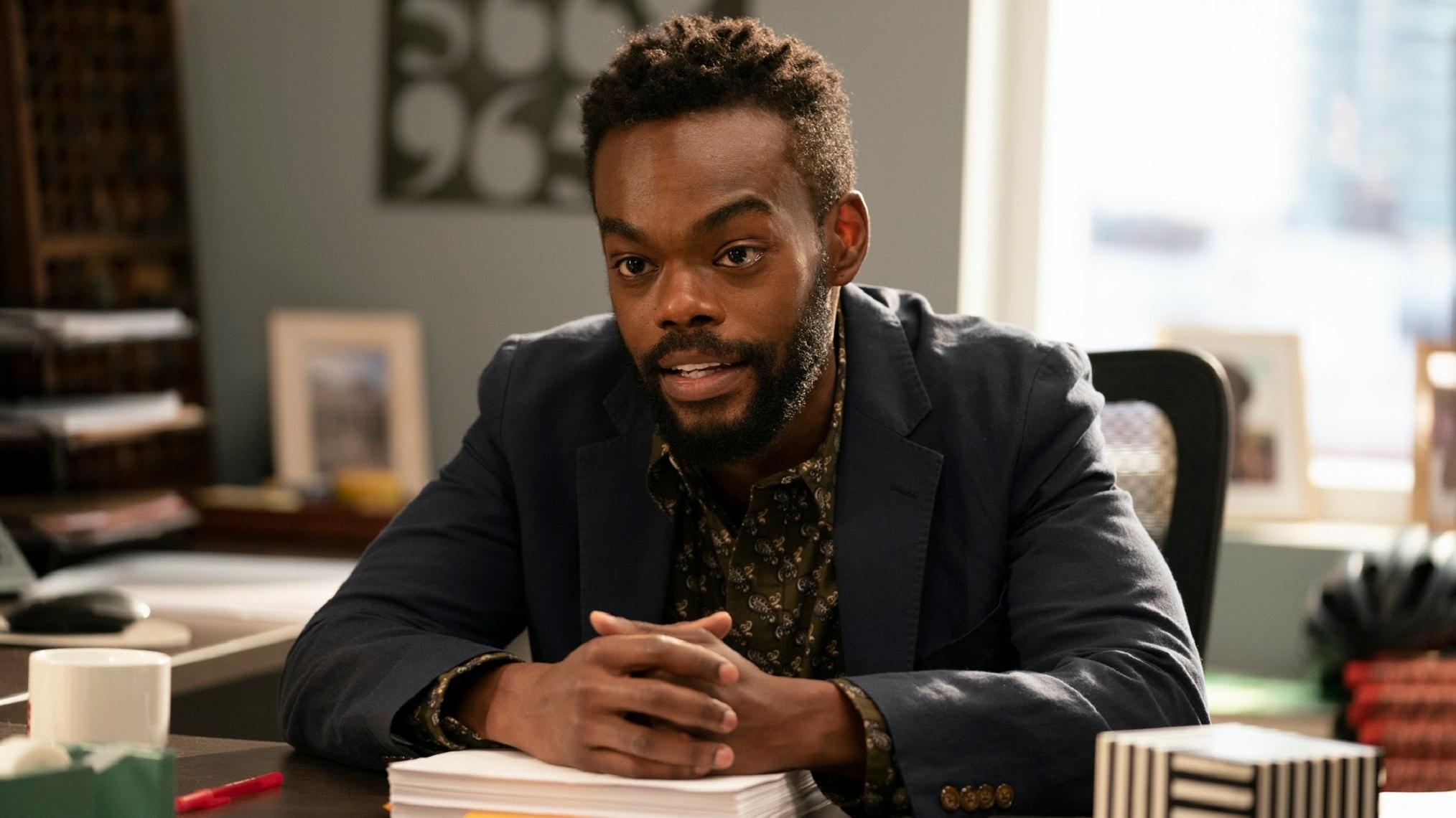Love Life’s terrific second season declares that Black love matters
The high-concept rom-com from Sam Boyd and Paul Feig blossoms into something new with William Jackson Harper


Near the cusp of the millennium, Black love was flourishing on the big screen. A cohort of young Black filmmakers, inspired as much by Spike Lee as Claudine, made such melanated rom-com classics as Theodore Witcher’s Love Jones, Malcolm D. Lee’s The Best Man, and Gina Prince-Blythewood’s Love & Basketball. Those films, along with multiple Terry McMillan adaptations, made sweeping Black romances a potent box-office draw. Beyond the “representation matters” incrementalism of stories centering on Black characters, the Black rom-com scene grew out of the notion that love stories are an especially powerful and therapeutic kind of representation.
That particular dream of the ’90s is alive—in the films of Stella Meghie and Eugene Ashe, in OWN’s underappreciated series Cherish The Day, and now, a bit improbably, in the second season of Love Life. HBO Max’s rom-com anthology first cast its novelistic gaze on Darby Carter (Anna Kendrick), an aspiring curator fumbling through her formative romances, with each episode focused on a different connection. Darby flits through the second season, but just long enough to introduce and cede the spotlight to Marcus Watkins (William Jackson Harper), another artistic Manhattan striver trying (and trying, and trying) to find his better half.
The shift from Darby to Marcus feels quite revolutionary considering the character succession is built directly into Love Life’s concept. Romantic comedy as a genre is overwhelmingly populated by white women trying to have it all in the big city. So it’s more than a notion to make a Black man the protagonist of a show that could have just as easily continued apace as Sex And The City’s worthiest spiritual successor, along with the blinkered perspective that implies.
But it’s a smooth transition, thanks in part to creator Sam Boyd’s sturdy format, which remains shot through with the giddy unpredictability of a drunken night in Hell’s Kitchen. Love Life is essentially an episodic anthology nested inside a season-length anthology, with each episode capturing one of Marcus’ most consequential relationships until he finds his “person,” as did Darby in season one. With only those bookends in place, the episodes in between can take on different tones and textures while using Marcus’ search for companionship as a season arc. And each episode has its own mojo and threatens to turn into something else at any given moment, like a slightly less transgressive Atlanta.
Boyd’s other wise decision was to recruit writer-producer Rachelle Williams as his co-showrunner, thereby avoiding the potential of creating in Marcus a Black character that could just as easily not be Black. From the first episode, Marcus is exploring his racial identity and grappling with double-consciousness. (To drive the point home, the reins on the show’s fairy godparent narration are handed from Lesley Manville to the mellifluous Keith David.)
Marcus is, predictably, the only Black person working at his publishing house, where he stewards the literary cash grabs of Instagram influencers while struggling to get his boss as invested in the new-wave Afrofuturism that most excites him. And after a long day of code-switching, Marcus goes home to his wife Emily (Maya Kazan), who’s perfectly pleasant but, as a white woman, can’t always be his port in a storm of micro-aggressions. Is Marcus’ marriage to Emily inherently limited by their cultural differences, or is he overanalyzing a classic seven-year itch?
It’s with that mindset that Marcus attends Darby’s first ill-fated wedding, where he meets Mia Hines (Jessica Williams) in a chance encounter that knocks him off-kilter and leaves him growing ever more skeptical of his relationship. To go into much more detail about Marcus and Mia’s arc would be to ruin the fun of Love Life, which delights in leading Marcus through a circuitous and frustrating path to find the one. But it’s safe to call the season a two-hander, with Harper and Williams bringing abundant warmth and wit to their characters as they play bumper cars in the maddening NYC dating scene.
Here, Harper reaches his final form as a leading man, further delivering on the promise he showed in turning The Good Place’s Chidi Anagonye from a neurotic milquetoast to a surprisingly credible (not to mention shredded) heartthrob. There are occasional flashes of that character in this one—with Marcus just as eager to please and prone to ruinous indecision—and Harper is as sharp as ever at channeling Marcus’ nuances with his expressive face.
The season is even more of a showcase for the Black women in its ensemble, and Williams’ effervescent performance is just one of many pleasant surprises on display. There are roles for two current Saturday Night Live players: Ego Nwodim, who gets a mostly dramatic storyline as one of Marcus’ more intense dalliances; and Punkie Johnson, who is charming enough as Marcus’ older sister to make it all the more confounding how little her night job gives her to do. Janet Hubert, unfortunately best-known for her bitter feud with young, hotshot sitcom star Will Smith, is terrific as Marcus’ mother, as is Kimberly Elise, who plays Mia’s.
But the writing remains Love Life’s biggest draw, and Marcus’ world feels richly constructed around him, perhaps more so than in Darby’s story. One satisfying grace note comes from the needle drops, comprising almost exclusively ’70s-era sweet soul, the songs any self-respecting hip hop head will recognize from early Kanye and Donuts-era J Dilla. Those songs, like Dionne Warwick’s flawless “You’re Gonna Need Me,” are not only the building blocks of the classic hip hop Marcus would have grown up listening to—they were also the soundtracks of the marriages he grew up hoping to emulate one day, a sonic through line from the Black love of the past to that of the present.
Love Life is certainly not a totally unique value proposition, with Insecure having returned for its final season and Lena Waithe the putative protagonist of Master Of None, but it’s meticulously crafted and snackable. It’s one of the rare shows that seems less enjoyable as a binge, despite HBO Max scheduling its 10 episodes in three weekly batches. It’s also among the best Black love stories in recent memory, so if Black romance is indeed a balm, Love Life should be applied liberally.